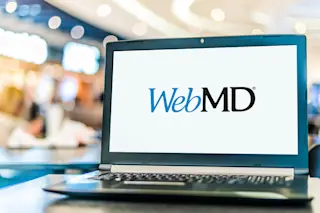Calling Dr. Google! Calling Dr. Google! That’s what most of us do when we’re worried about a symptom. But is it a good idea to diagnose yourself? Probably not as bad as you think, but you do need to take some precautions.
You shouldn’t feel guilty about your visits to Dr. Google. Even the pros do it. Matthew Adkins is a family practice physician and member of the American Academy of Family Physicians (AAFP) board of directors. He freely admits that when he himself has a new symptom, he often checks Google before pulling out the medical textbooks.
“It’s easier for all of us,” he says. The advantage Adkins has over the rest of us, though, is that he knows where to look and is able to interpret what he finds and put it in context. Doctors can do this not only because they’ve had years of training but because they’ve had lots of experience, too. Without that training and experience, it’s easy to be misled by well-meaning and even reputable websites.
Is Self Diagnosis Valid?
Making an accurate diagnosis, Adkins says, involves more than checking off boxes in a list of symptoms. A relationship between the patient and the physician can make a big difference. A family physician gets to know their patients over time.
“If I don’t know someone at all, it’s a little more difficult to sift through all the nuances of how this person might be reporting their symptoms to me and what they say is going on,” says Adkins. “But when you're able to take all the objective and subjective information that you know about the person, well, that’s where the art part comes in.”
When it comes to mental health conditions, diagnosis can be especially tricky because some symptoms can be present in several different disorders. For example, difficulty concentrating can occur with a major depressive episode, post-traumatic stress disorder (PTSD), attention deficit hyperactivity disorder (ADHD), and other conditions.
Also, for many mental health conditions, there’s no one definitive biological marker that says you have a specific problem. Nailing a diagnosis involves understanding the person's context and the way the symptoms affect their functioning, explains Bethany Teachman, professor of psychology and director of clinical training at the University of Virginia.
“There is not a magical script that will answer all questions,” she says.
There is another risk that accompanies the diagnosis, even self-diagnosis, of mental illness. Despite efforts to reduce the bias and stigma associated with mental illness, being labeled with a mental health disorder can often have unwanted implications for work, relationships, and personal identity.
“So you want to be really careful to get correct information,” says Teachman.
There’s a lot of good information out there, but there’s a lot of misinformation, too, she adds, pointing to a 2022 study that found just over half of TikTok videos about ADHD contained misleading information.
Read More: How Your Brain's “Fingerprints” Could Diagnose Disease
Use the Internet Wisely for Medical Information
Still, Adkins and Teachman agree that the Internet can be useful for patients. Most family physicians appreciate it when patients come in with questions about things they’ve looked up online or elsewhere. It shows they are curious and engaged with their health and are willing to do some work to take care of themselves, Adkins says.
From the mental health perspective, Teachman says that the internet is making it much easier for people to have conversations about their mental health. And that’s a good thing. It helps normalize mental health problems.
The trick is to go to reliable sites for information. Adkins suggests looking for sites that have citations to medical research. Or better yet, go straight to the websites of medical organizations.
“See who’s writing it and who’s responsible for it,” he advises.
The important thing to know is that online research is just the starting point — even when it comes from sources as distinguished as the National Institutes of Health. The next and crucial step is to discuss what you’ve learned with a trusted physician. If you self-diagnose, consider it a preliminary diagnosis.
Read More: Social Media and Search Engines Can Now Forecast Disease Outbreaks
Article Sources
Our writers at Discovermagazine.com use peer-reviewed studies and high-quality sources for our articles, and our editors review for scientific accuracy and editorial standards. Review the sources used below for this article:
Family practice physician and member of the American Academy of Family Physicians (AAFP) board of directors. Matthew Adkins
The Canadian Journal of Psychiatry. TikTok and Attention-Deficit/Hyperactivity Disorder: A Cross-Sectional Study of Social Media Content Quality
National Institutes of Health. Turning Discovery Into Health















